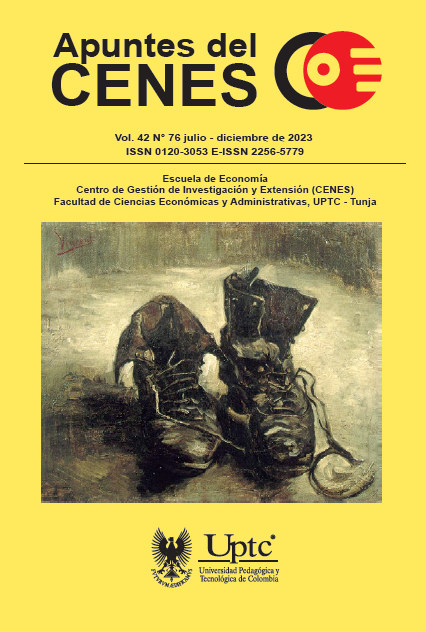Adam Smith's Perspective on the Tension Between Education and Economy

Abstract
This paper analyzes Smith's theory compared to the analyses present in the theories of economics of education and philosophy of education. Adam Smith argues that education plays an essential role in the evolution and development of market societies. For Smith, education is not an aggregate of economic relations. Still, it intervenes to account for the pathologies that the market society develops in its evolution, related to ignorance, stupidity and the loss of sociability. This sense of pertinence is compared with that proposed by contemporary educational policies in higher education, from the analysis of the economics of education, which end up developing proposals that are functional to socio-economic logic. The perspective of education as a space for resolving pathologies is similar to the positions of the philosophy of education developed by Dewey and Mill, which, according to Kitcher (2009), seek to increase public knowledge for society. Smith's approach is adequate to understand the place of education in societies where mercantile logics predominate; however, his practical solutions are inadequate because they end up reproducing what he wants to avoid, the pathologies of the market. In this sense, the purpose is in tension with its applicability; this tension is nothing more than a sample of the problems that the market society develops when it tries to position education in the life space of society.
Keywords
classical economics, Adam Smith, educational theory, economics of education, philosophy of education, public policy in education
References
- Barrera, R.A., Gallardo, A. & Muñoz Dagua, C. (2023, junio). La mano invisible de Smith. Un acercamiento a partir del análisis metafórico. Revista de Economía Institucional, 25(49), 87-108. https://doi.org/10.18601/01245996.v25n49.05 DOI: https://doi.org/10.18601/01245996.v25n49.05
- Cannella, G. S., & Koro-Ljungberg, M. (2017). Neoliberalism in Higher Education: Can We Understand? Can We Resist and Survive? Can We Become Without Neoliberalism? Cultural Studies, Critical Methodologies, 17(3). https://doi.org/10.1177/1532708617706117 DOI: https://doi.org/10.1177/1532708617706117
- Caplan, B. (2018). The Case Against Education. Princeton University Press. https://doi.org/10.23943/9781400889327 DOI: https://doi.org/10.23943/9781400889327
- Cartwright, N. (2006). Well-ordered Science: Evidence for Use. In nombre del editor Philosophy of Science (pp). Cambridge University Press. https://doi.org/10.1086/518803
- Cartwright, N. (2006). Well-Ordered Science: Evidence for Use. Philosophy of Science, 73(5), 981-990. doi:10.1086/518803 DOI: https://doi.org/10.1086/518803
- Chace, W. M. (2018). The Case Against Education: Why the Education System Is a Waste of Time and Money by Bryan Caplan. Common Knowledge, 24(3), 430-431. https://doi.org/10.1215/0961754x-6939829 DOI: https://doi.org/10.1215/0961754X-6939829
- Cremaschi, S. (2022). The Argumentative Structure of the Wealth of Nations. Iberian Journal of the History of Economic Thought, 9(2), 95-109. https://doi.org/10.5209/ijhe.83973 DOI: https://doi.org/10.5209/ijhe.83973
- Etzkowitz, H. & Leydesdorff, L. (1995, January). The Triple Helix --University-Industry-Government Relations: A Laboratory for Knowledge Based Economic Development. EASST Review, 14(1), 14-19. https://ssrn.com/abstract=2480085
- Fiori, S. (2021). Machines, Bodies and Invisible Hands. Springer International Publishing. DOI: https://doi.org/10.1007/978-3-030-85206-1
- Hurtado, J. (2019). Adam Smith and Alexis de Tocqueville on the Division of Labour. European Journal of the History of Economic Thought, 26(6), 1187-1211. https://doi.org/10.1080/09672567.2019.1635182 DOI: https://doi.org/10.1080/09672567.2019.1635182
- Jessop, B. (2018). On Academic Capitalism. Critical Policy Studies, 12(1), 104-109. https://doi.org/10.1080/19460171.2017.1403342 DOI: https://doi.org/10.1080/19460171.2017.1403342
- Kitcher, P. (2010). Education, Democracy, and Capitalism. In H. Siegel (Ed.), The Oxford Handbook of Philosophy of Education (pp. 300-318). Oxford University Press. https://doi.org/10.1093/oxfordhb/9780195312881.003.0018 DOI: https://doi.org/10.1093/oxfordhb/9780195312881.003.0018
- Knuuttila, T. (2013). Science in a New Mode: Good Old (Theoretical) Science versus Brave New (Commodified) Knowledge Production? Science & Education, 22, 2443–2461. 10.1007/s11191-012-9498-9 DOI: https://doi.org/10.1007/s11191-012-9498-9
- Kotzmann, J. (2018). The Human Rights-Based Approach to Higher Education. Oxford University Press. DOI: https://doi.org/10.1093/oso/9780190863494.001.0001
- Leydesdorff, L., & Meyer, M. (2003). The Triple Helix of University-Industry-Government Relations. Scientometrics, 58, 191-203. https://doi.org/10.1023/A:1026276308287 DOI: https://doi.org/10.1023/A:1026276308287
- McCowan, T. (2013). Education as a Human Right. Bloomsbury.
- Neuhouser, F. (2023). Diagnosing Social Pathology Rousseau, Hegel, Marx, and Durkheim. Cambridge University Press. https://doi.org/10.1017/9781009235020 DOI: https://doi.org/10.1017/9781009235020
- Nowotny, H., Scott, P., & Gibbons, M. (2003). Introduction: “Mode 2” Revisited: The New Production of Knowledge. Minerva, 41, 179-194. https://doi.org/10.1023/A:1025505528250 DOI: https://doi.org/10.1023/A:1025505528250
- Nussbaum, M. (2010). Sin fines de lucro: Por qué la democracia necesita de las humanidades. Akal. DOI: https://doi.org/10.2307/j.ctvndv60c
- Olssen, M., & Peters, M. A. (2005). Neoliberalism, Higher Education and the Knowledge Economy: From the Free Market to Knowledge Capitalism. Journal of Education Policy, 20(3), 313-345. https://doi.org/10.1080/02680930500108718 DOI: https://doi.org/10.1080/02680930500108718
- Otteson, J. (2023, June). Adam Smith on Public Provision of Education. Journal of the History of Economic Thought, 45(2), 229-248. https://doi.org/10.1017/S1053837222000645 DOI: https://doi.org/10.1017/S1053837222000645
- Piqué, P. (2018). The Notions of Sympathy and Value in Parallel. The Problem of the Small Society and the Universal Society in Adam Smith. Tópicos, Revista de Filosofía, 55, 99-126. https://doi.org/10.21555/top.v0i55.918 DOI: https://doi.org/10.21555/top.v0i55.918
- Ranga, M., & Etzkowitz, H. (2013). Triple Helix Systems: An Analytical Framework for Innovation Policy and Practice in the Knowledge Society. Industry and Higher Education, 27(4). https://doi.org/10.5367/ihe.2013.0165 DOI: https://doi.org/10.5367/ihe.2013.0165
- Roncaglia, A. (2006). La riqueza de las ideas. Una historia del pensamiento económico. Prensas Universitarias de Zaragoza.
- Sawa, T. (2015, August). Humanities Under Attack. The Japan Times. https://www.japantimes.co.jp/opinion/2015/08/23/commentary/japan-commentary/humanities-attack/
- Slaughter, S., & Rhoades, G. (2011). Markets in Higher Education: Trends in Academic Capitalism. In P. Altbach, P. Gumport, & R. Berdahl editors American Higher Education in the Twenty-First Century: Social, Political, and Economic Challenges (págs. del artículo pp. 433-464). The Johns Hopkins University Press, Editorial.
- Smith, A. (2008). An Inquiry into the Nature and Causes of the Wealth of Nations. In Readings in Economic Sociology. Oxford University Press. (Obra original publicada en 1776)
- Smith, A. (2011). La riqueza de las naciones. Alianza Editorial.
- Smith, A. (2004). Theory of Moral Sentiments. Series: Cambridge Texts in the History of Philosophy. Cambridge University Press. (Obra original publicada en 1759)
- Smith, C. (2023). Adam Smith and Spontaneous order. In A. Burgio (ed.), Adam Smith and Modernity 1723-2023 (pp. 3-17). Routledge. https://doi.org/10.4324/9781003301448 DOI: https://doi.org/10.4324/9781003301448-2
- Thomas, A. M. (2018). Adam Smith on the Philosophy and Provision of Education. Journal of Interdisciplinary Economics, 30(1). https://doi.org/10.1177/0260107917728597 DOI: https://doi.org/10.1177/0260107917728597
- Traphagan, J. (2015, Sep.) The Japanese Government’s Attack on the Humanities and Social Sciences. The Diplomat. https://thediplomat.com/2015/09/the-japanese-governments-attack-on-the-humanities-and-social-sciences/
